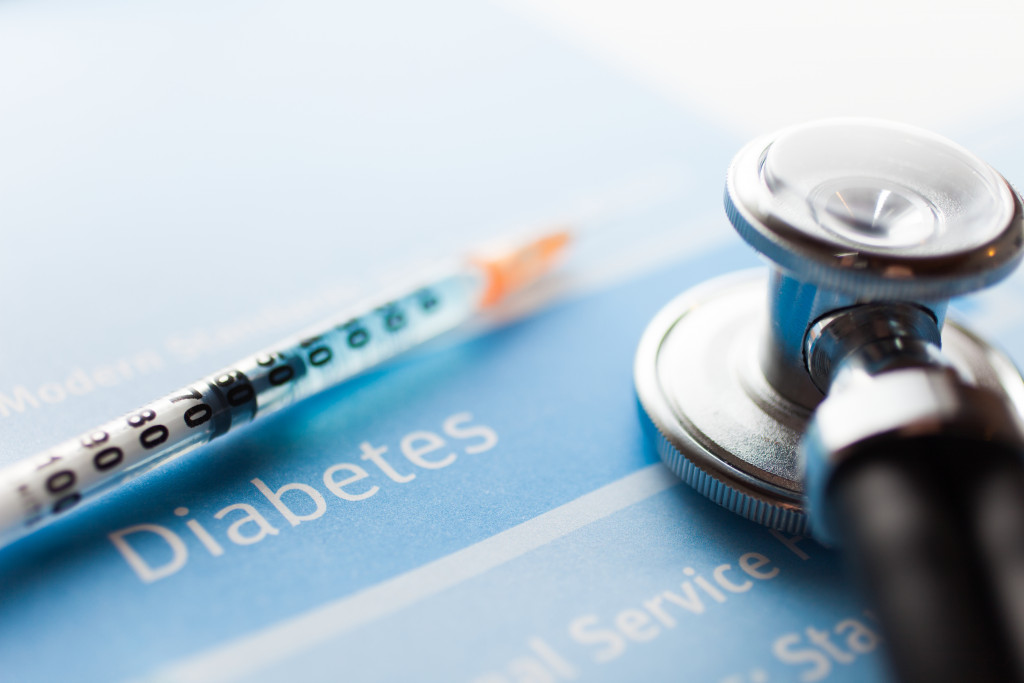Diabetes is a chronic disease that affects millions of people worldwide. Statistics show that in the United States alone, more than 30 million people have diabetes. Diabetes can cause serious health complications if not managed properly. Fortunately, there are several tips for managing and preventing diabetes that can help individuals stay healthy and reduce their risk of developing diabetes or its associated complications. This article will discuss four key tips for managing and preventing diabetes.
1. Eat Healthy Foods
Eating healthy foods is one of the most critical steps for those with diabetes or prediabetes who wish to manage their condition. Eating a balanced diet filled with whole grains, lean proteins, fruits and vegetables, and healthy fats can help lower blood sugar levels and reduce the risk of complications. In addition, avoiding processed foods high in unhealthy fats, sugars, salts, and other additives is essential for managing diabetes.
It is recommended that individuals with diabetes or prediabetes consume three small meals and two snacks throughout the day. This will help regulate blood sugar levels instead of eating one large meal or skipping altogether. Additionally, portion size should be considered when planning a healthy diet. Portions should not be too big or too small; a good way to gauge the appropriate size for meals is to use your fist as a measure of how much food you should be eating.
Fiber-rich foods such as whole grains, legumes, and fruits and vegetables should comprise most of a person’s diet when managing diabetes. Increasing daily intake of soluble fibers can help slow digestion and glucose absorption. This can help manage blood sugar levels more effectively.
2. Visit the Doctor and Dentist Regularly
Regular visits to the doctor and dentist are an essential part of managing diabetes. The doctor can monitor blood sugar levels and check for any issues with other organs, such as the kidneys, eyes, heart, and lungs, that may be affected by diabetes. Additionally, regular visits to the dentist will help ensure oral health is maintained.
It is also essential to be sure that any medications prescribed by the doctor are taken regularly. Following the doctor’s instructions for managing diabetes is critical for maintaining good health. Your doctor should answer any questions you have about your diabetes and can provide advice on healthy eating and lifestyle habits to help manage it. If there are any signs or symptoms of diabetes, it’s essential to visit the doctor as soon as possible. These can include frequent urination, increased thirst, fatigue, and weight loss.
It is also essential to maintain regular visits to the orthodontic office. These visits will help ensure your teeth and gums stay healthy, as well as help identify any signs of gum disease or other dental issues. During the appointment, the dentist may also check for dry mouth or cracked lips which can be a sign of diabetes. Ask the dentist if you have any questions or concerns about your oral health.
3. Monitor Blood Sugar Levels

Monitoring blood sugar levels is an essential step in managing diabetes. It’s important to know what your blood sugars are doing so that you can adjust your diet, physical activity, and medications as needed. Checking your blood sugar level with a glucometer regularly (such as before and after meals or when you experience specific symptoms) can help you learn how certain foods, activities, and medications affect your glucose levels.
Your doctor may also recommend taking an A1C test every three months to better understand your average blood sugar levels over the past two or three months. Keeping track of your A1C results and daily readings can help you, and your healthcare provider will assess how well diabetes management is going.
Aside from the glucometer, there are other gadgets and tools that you can use to help you manage diabetes better. Continuous glucose monitors (CGMs) measure your glucose levels throughout the day and night, which can be helpful for those who need more frequent readings as well as individuals with Type 1 diabetes. Wearable devices such as activity trackers can also monitor physical activity levels, which is vital for managing diabetes.
4. Quit Smoking
Smoking can significantly increase an individual’s risk of diabetes and its associated complications. Quitting smoking is one of the most effective ways to lower your risk of developing diabetes or reduce symptoms if you already have diabetes. If you are a smoker, taking steps to quit can dramatically improve your health.
Quitting smoking usually involves an emotional and physical commitment, and it may take multiple attempts to break the habit. If you are considering quitting, ask your healthcare provider for advice on resources to help you quit. Some options include nicotine replacement therapy (gums, patches, inhalers, etc.), behavioral counseling, and medications.
It is important to remember that some withdrawal symptoms may occur when you quit, including anxiety, irritability, cravings, and restlessness. Dealing with these issues simultaneously and attempting to quit smoking can be challenging but not impossible.
To Wrap It Up
Diabetes can be managed effectively with lifestyle changes and proper management techniques. Following the four tips for managing and preventing diabetes outlined above is essential for those with prediabetes or diabetes who wish to stay healthy and avoid serious complications associated with their condition.
